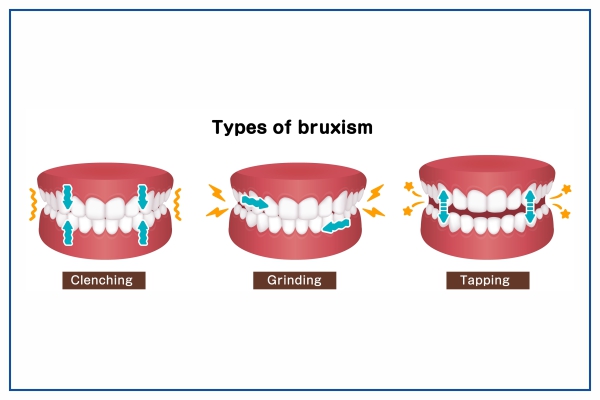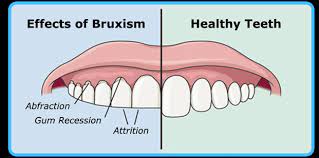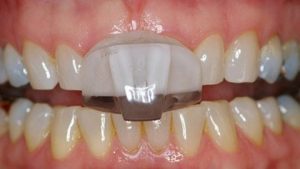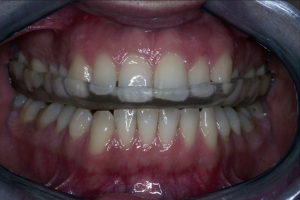Teeth grinding, also known as bruxism, is a common condition that affects a significant number of individuals. This condition is characterized by the grinding or clenching of teeth usually during sleep but sometimes when awake too. This can cause a range of dental problems, including chipped or cracked teeth, jaw pain, headaches, and facial muscle tenderness. Understanding the causes of tooth grinding can help in effectively managing the condition.

Some common symptoms include:

There are several factors that can contribute to the development of tooth grinding, including:
Stress and anxiety are common triggers for tooth grinding. When a person is under significant amount of stress or anxiety, they may unconsciously grind their teeth as a coping mechanism.
Sleep disorders, such as sleep apnea, can also cause teeth grinding. This is because the lack of oxygen and frequent waking during sleep can lead to increased muscle activity, including grinding of teeth.
Certain medications, such as antidepressants, have been linked to an increased risk of bruxism. These medications can cause changes in the levels of certain neurotransmitters in the brain, leading to an increase in muscle activity which can cause tooth grinding.
Research has shown that tooth grinding can be hereditary. This means that individuals who have a family history of bruxism are more likely to develop the condition themselves.
Treatment for tooth grinding will depend on the underlying cause of the condition. Some common methods of managing teeth grinding include:
Stress management techniques, such as meditation, exercise, and relaxation therapy, can help to reduce the frequency and intensity of grinding.

Wearing a mouthguard while sleeping can help to prevent grinding. Mouthguards work by creating a physical barrier between the upper and lower teeth, preventing them from grinding against each other. At Pearl dental clinic, we provide Soft night guards and NTi Splints and Michigan Splints for management of teeth grinding and bruxism. The first line of splints is usually a soft night guard which is also the cheapest option but more severe cases may need an NTi Splint or even a Michigan Splint. It usually takes a few weeks for patients to get used to wearing a night guard when sleeping at night. Night guards should only be worn when sleeping at night and never 24/7 as that can alter your bite.

If tooth grinding is caused by certain medications, switching to alternative medications may be necessary. You will need to speak to your General Practitioner regarding your medication and you should not make medication changes without first consulting your doctor.
We scan your teeth with an iTero digital scanner so that we have a baseline digital record of your teeth at the present time. Future scans are compared to the current scan and the system will tell us to the micron level if you are still grinding down your teeth. You will need to wear your night guard every night for prevention and to protect your teeth from further tooth wear.
In some cases, dental treatments, such as composite bonding and dental crowns may be necessary to repair any tooth wear damage that has occurred. Where possible, we recommend the more conservative treatment option of composite bonding over dental crown treatment. Composite bonding usually lasts around 3-5 years.
Pearl Dental Clinic is open 7 days a week from 9am-10pm. You can book a consultation for assessment of teeth grinding and bruxism by calling us on 0208 547 9997 or by emailing us or book an appointment online (available 24 hours/day).

Click here to apply online

New & existing patients can book appointments online, 24 hours a day

Click to contact us now!
